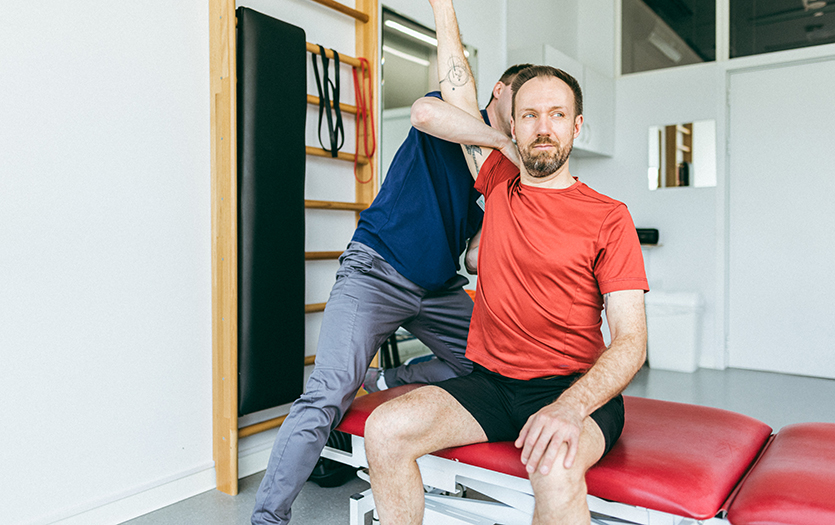
This post was written by Ryan Singerman, DO, PPG – Weight Management & Bariatric Surgery.
Quitting smoking brings immediate and important benefits to your health including reducing your heart attack and stroke risk, improving lung health, reducing the risk of chronic diseases and many more. However, we know that maintaining a healthy weight for your body is an important piece of health as well. Sometimes the health benefits of quitting smoking can feel outweighed by the fear of gaining weight once you quit. Let’s take a closer look at how smoking affects our bodies and learn some tools to help avoid weight gain as you quit.
Why smoking is so addictive
Cigarettes contain nicotine, a highly addictive poison. Nicotine use increases endorphins in the body, which relieve stress, pain and improve your mood. It also increases dopamine, which activates the pleasure/reward center of the brain. This makes your brain think that nicotine is a good substance, which reinforces its use.
Nicotine also increases your respiration and heart rate, which temporarily boosts the number of calories burned. This, in turn, can reduce appetite. The additive effect is that nicotine can actually foster some amount of weight loss, satiety or weight stability.
Another challenging part of smoking addiction goes beyond nicotine and has to do with humans’ tactile-oral fixation. This tactile-oral fixation pathway is rooted in our limbic cortex, or what some people call our “lizard brain,” and has been present since birth. This same pathway is why sucking on a pacifier calms babies, why children suck their thumbs and what calms adults when they puff on a vaporizer or cigarette. Having these items in your hands and fingers satisfies a fidgeting need and the oral component is extremely calming. This is why when a person is quitting smoking, they often end up turning to food or snacks to feed that same tactile-oral fixation, which can contribute to weight gain.
Tips for quitting smoking and avoiding weight gain
- Recognize that nicotine withdrawal typically peaks within three days, but for some may last several weeks.
- This means that, on average, if you make it past the third day, your body is not strictly desiring nicotine any longer. Now you should focus on the challenge of breaking the intrinsic habit and the tactile-oral fixation.
- The best predictor of success is having a quit date and being mentally and physically prepared.
- Mentally prepare by working on coping strategies, including working with 1-800-QUIT-NOW (1-800-335-3569), Smokefree.gov, or Parkview Freedom from Smoking.
- Physically prepare by removing smoking devices/products, lighters, ash trays, photos, clothing and circumstances (as much as possible) from your life to remove those triggers.
- Feed the oral-tactile fixation with low-calorie, low-cost options. Your brain is going to want something, be prepared:
- Sugar-free gum is an excellent replacement
- Cut celery or carrot to sticks the size/shape of cigarettes and keep them on had to hold or munch on instead of chips/candy or other less healthy snacks
- Cut plastic straws to a cigarette length to hold/puff on
- Intentionally increasing physical activity can also help by elevating your heart rate and respiration drive. If you walk briskly, do a few sit-ups/pushups, or some jumping jacks when you are feeling the urge to smoke, this naturally increases your heart rate/respiration rate and may help reduce the desire to smoke.
- Work with your medical provider to see if medications could help and be right for you. Options include nicotine patches, lozenges, gum, a nicotine-blocking medication like varenicline, or the medication bupropion, which can help with initial cravings and reduce excess eating.
- If you’re continuing to struggle and weight gain is occurring, reach out to your medical provider to specifically approach weight loss options that can include mental health, physical health, dietary counseling, and even appropriate medications.
Quitting smoking is one of the single most important things anyone can accomplish for their long-term health, but doing so while not also gaining weight poses a challenge. With the proper preparation and reaching out for help either before or during cessation, weight gain can be minimized if not outright defeated!
To learn more about the resources available to you at PPG - Weight Management & Bariatric Surgery, including free seminars, contact our office at 260-425-6390 or fill out this form and one of our care team members will contact you with more information.




